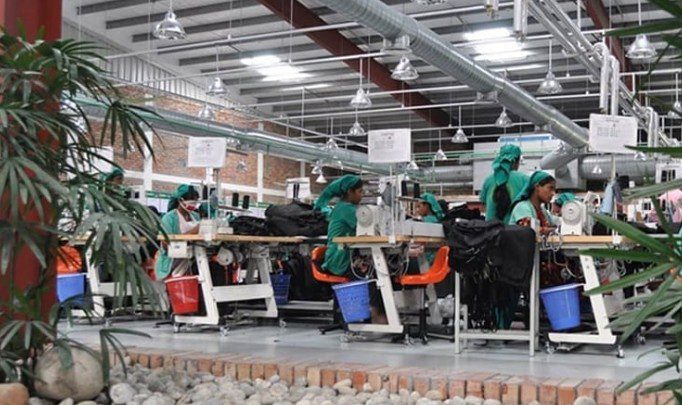Bangladesh’s ready-made garment (RMG) exports posted a healthy growth of 8.84 percent in the fiscal year 2024–25 (FY25), reaching $39.35 billion despite global headwinds.
According to country-wise export data released by the Export Promotion Bureau (EPB), the European Union (EU) remained the largest destination, accounting for $19.71 billion or 50.10 percent of total RMG exports. Exports to the United States stood at $7.54 billion, comprising 19.18 percent, while the United Kingdom and Canada accounted for $4.35 billion (11.05%) and $1.30 billion (3.31%) respectively, reports BSS.
Year-on-year, Bangladeshi apparel exports grew by 13.79 percent to the US, 9.10 percent to the EU, 12.07 percent to Canada, and 3.68 percent to the UK. Within the EU, Germany remained the top importer with $4.95 billion in purchases, followed by Spain at $3.40 billion, France $2.16 billion, Netherlands $2.09 billion, Poland $1.70 billion, Italy $1.54 billion and Denmark $1.04 billion.
Several EU destinations also recorded significant growth rates, including the Netherlands (21.21%), Sweden (16.41%), Poland (9.77%), and Germany (9.47%).
Exports to non-traditional markets also performed well, rising by 5.61 percent to $6.44 billion and representing a 16.36 percent share of total RMG exports. Japan, Australia, and India emerged as the leading destinations in this category, with export growth to Turkey reaching 25.62 percent, India 17.39 percent, and Japan 9.13 percent. However, shipments to Russia, South Korea, the UAE, and Malaysia declined.
In terms of product categories, the knitwear sector led with 9.73 percent growth, while the woven sector expanded by 7.82 percent in FY25.
Since the onset of the COVID-19 pandemic, the global apparel landscape has shifted unexpectedly, presenting Bangladeshi exporters with new and evolving challenges. Despite this, traditional markets continue to drive export performance, accounting for a robust 84 percent of the total.
In contrast, the share of non-traditional markets remains modest at 16 percent. According to the International Trade Centre (ITC), the global apparel market reached approximately $500 billion in 2024, of which non-traditional markets comprised $150 billion. Bangladesh holds a 6 percent stake in that segment. Notably, the country contributed 5.50 percent to Japan’s total apparel imports and 11.53 percent to Australia’s, indicating significant growth potential.
Speaking to BSS, Mohiuddin Rubel, former director of the BGMEA and Managing Director of Bangladesh Apparel Exchange, stressed the importance of market and product diversification to remain globally competitive.
“Adapting to this dynamic environment underscores the critical need to focus on cultivating fresh markets and products through relentless innovation to maintain the country’s competitive edge,” said Rubel, who also serves as Additional Managing Director of Denim Expert Ltd.
He added: “Embracing innovation and venturing into new territories is not just a strategic move but a necessity in today’s evolving landscape. Let’s harness this potential and steer our course towards greater market diversification and expansion.”
Rubel noted that competitiveness today is about more than just pricing. “To truly stand out, you must maintain competitive advantages over rival countries which are essential to becoming the top choice for your customers. It’s not just about the cost; it’s about offering unique benefits that set you apart and keep you ahead in the game.”


